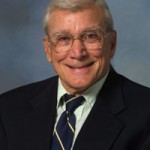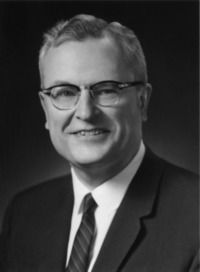Memories of Sensenbrenner Hall (Part 2)
 I first walked into Sensenbrenner Hall on August 1st, 1966. I was a newly appointed Associate Professor and the Director of the MU Law School Institute on Poverty and the Law. The federal Office of Economic Opportunity had smiled on the MU Law School with a grant to the tune of about $250,000.
I first walked into Sensenbrenner Hall on August 1st, 1966. I was a newly appointed Associate Professor and the Director of the MU Law School Institute on Poverty and the Law. The federal Office of Economic Opportunity had smiled on the MU Law School with a grant to the tune of about $250,000.
Alas, even then our beloved Sensenbrenner Hall lacked sufficient office space, and the Institute on Poverty was outposted to rooms on the third floor of the Varsity Theater Building (a couple of blocks west on Wisconsin Avenue).
However, I was not completely cut off from the rest of the faculty. Dean Robert Boden, who had hired me out of Texas Southern University Law School, urged me to meet with the faculty at its daily 10 a.m. coffee hour in a tiny room in the basement of Sensenbrenner Hall. There, four or five out of the seven-member law faculty would opine on the latest fortunes of the MU Basketball Warriors or the Green Bay Packers (depending on the season).


